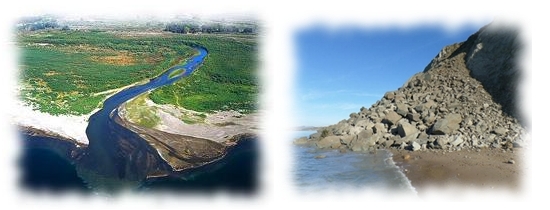The ADRIARadNet project has successfully designed an innovative Decision Support System (DSS) to enhance the response capacity to extreme weather events affecting the safety of people in the Adriatic area.
CapRadNet project aims at extending the DSS capability to face hazard mitigation taking into account maritime, coastal, airport and metropolitan environments by means of the following specific objectives:
- Strengthening the surveillance of the coastline and sea pollution through the analysis of the mixing of river water and sea water and their impact on marine biodiversity.
- Enhance the DSS performance in the surveillance of the coastal areas against flood by using a wave model and taking into account the “barrier” effect of the sea in the vicinity of rivers’ outlets.

- Improving the management of severe weather events on the airport flight operations by utilizing WRFAdria model and weather radar; for this purpose a new radar system will be installed in Pescara airport area.
- Developing a landslide susceptibility map for the Adriatic coast and an “early warning system” for the most exposed territory in case of heavy precipitation by using WRFAdria model as input data.

- Understanding building resilience exposed to atmospheric hazards by means a feasibly study and an application on the Municipitaly of Mostar.
- Enhancing the DewetraNet platform, by integrating oceanographic data for building real-time risk scenarios in the Adriatic and Ionian sea.
- Wider dissemination of the activities and results achieved by involving the key stakeholders and broad public.
The project also envisages a wider dissemination of the activities and results achieved by involving the key stakeholders and broader public.

Scheme of the DSS developed within ADRIARadNet project

